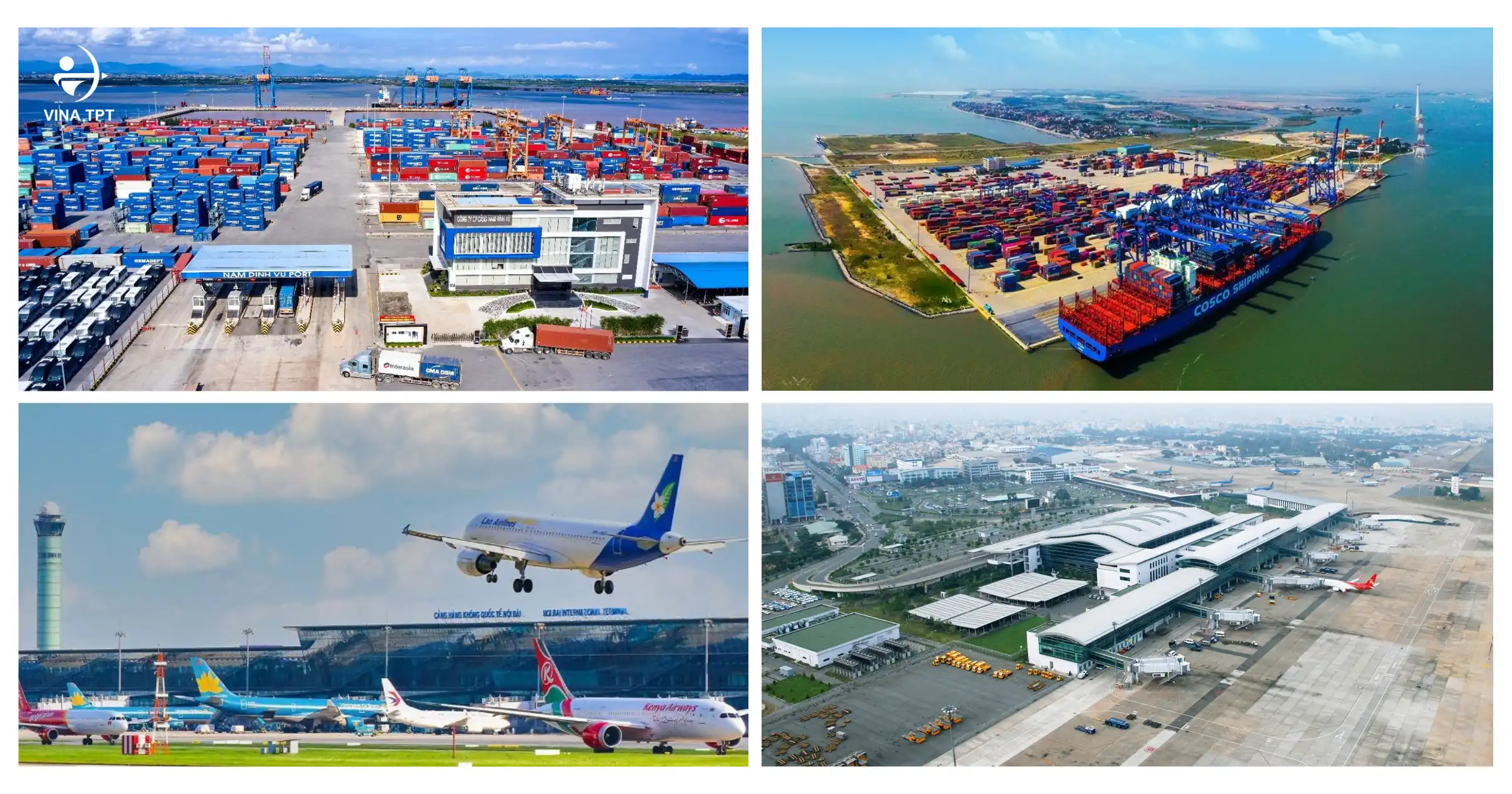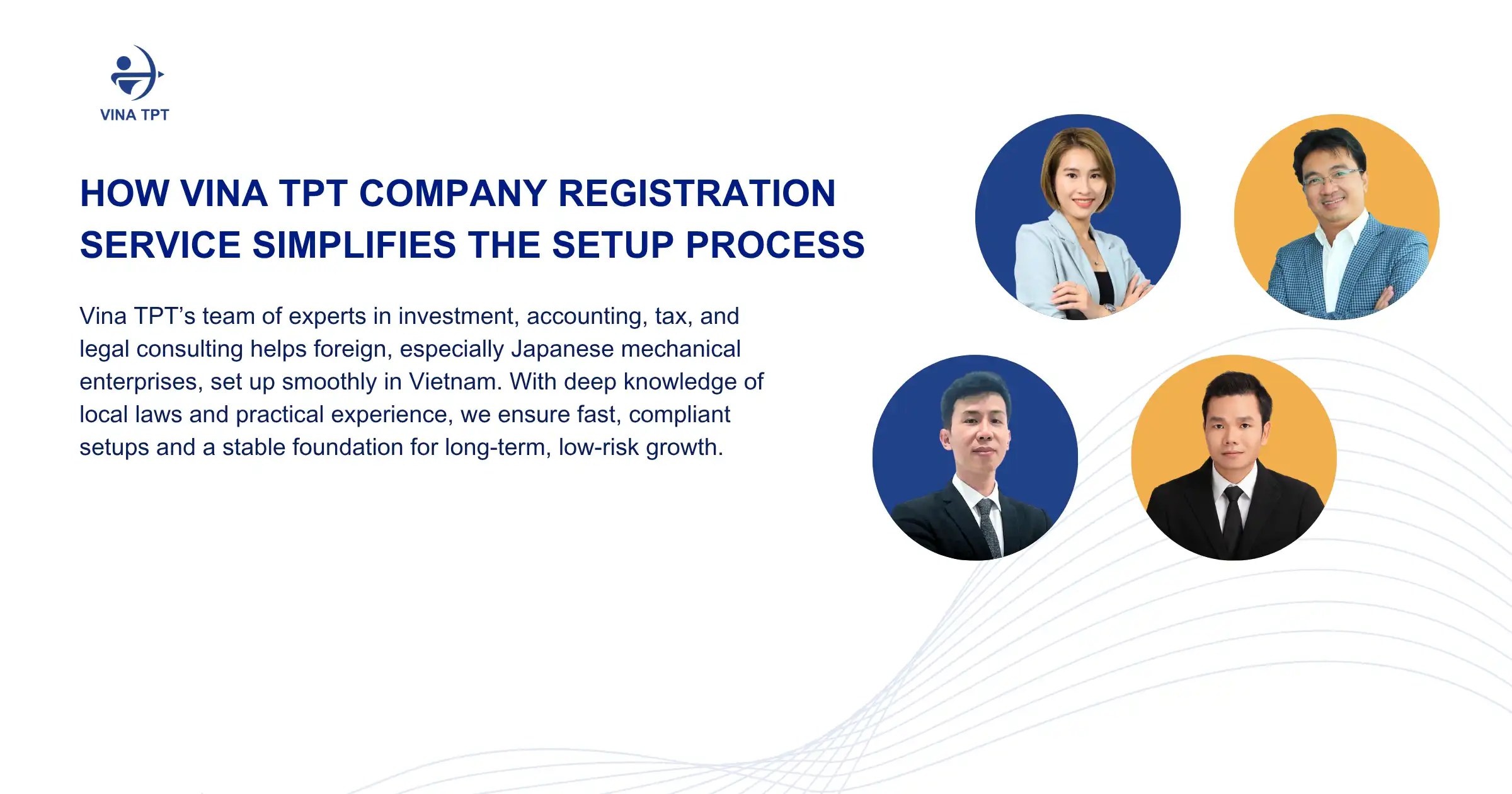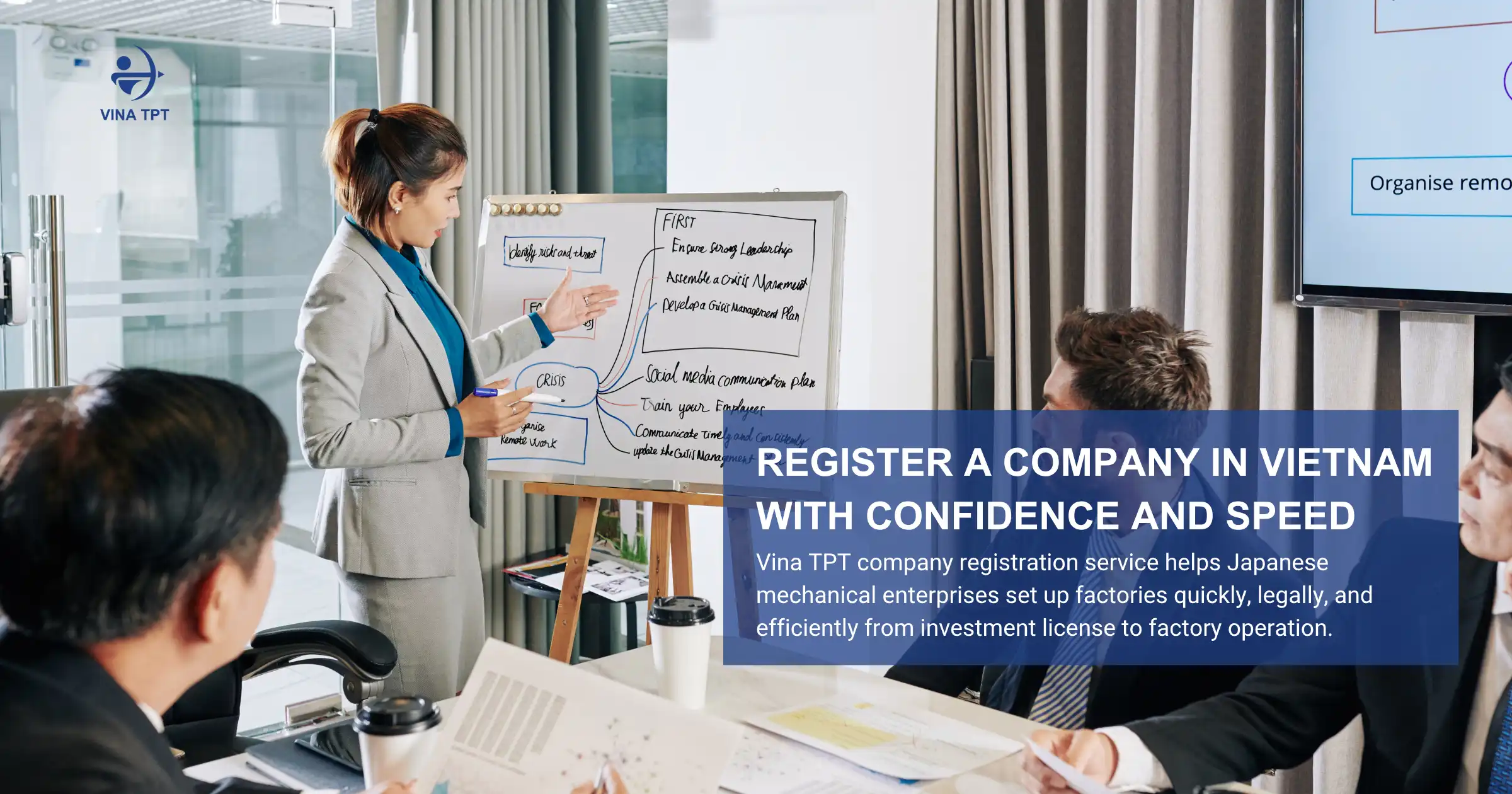1. Vietnam – A Strategic Base for Japanese Mechanical Manufacturers
Over the past decade, Vietnam has emerged as a new manufacturing hub in Asia, particularly attractive to Japanese mechanical engineering companies. The reasons come from reasonable operating costs, highly skilled technical human resources and a favorable geographical location for connecting the regional supply chain. In addition, the Vietnamese government has also implemented many tax incentives and infrastructure support policies to attract FDI, especially in the field of mechanical engineering and supporting industries.
For Japanese enterprises, setting up a business in Vietnam not only helps reduce costs but also expands access to the ASEAN market, while maintaining production quality according to Japanese standards. This is the reason why more and more mechanical corporations choose Vietnam as a strategic production base in Southeast Asia.
2. Legal Requirements to Register a Mechanical Manufacturing Company
To register a mechanical manufacturing company in Vietnam, businesses need to carry out some important legal procedures:
Investment Registration Certificate (IRC) if there is foreign capital. IRC is the first license allowing the investor to implement the project in Vietnam.
The required documents usually include:
- Application for investment project implementation and Project proposal: stating the objectives, scale, location, investment capital, progress.
- Proof of the investor’s financial capacity: bank statement, credit contract or collateral.
- Legal documents of the investor:
- Individual: Notarized passport, consular legalization.
- Organization: Business registration certificate or equivalent document, consular legalization.
- Project location: lease contract or land/office use rights certificate.
After the IRC is granted (or for 100% domestic-owned enterprises), the investor applies for an ERC – an official license for the enterprise to operate, and also the tax code of the company.
Enterprise Registration Certificate (ERC) at the Department of Finance. The ERC dossier usually includes:
- Application for enterprise registration.
- Company Charter: stipulates the organizational structure, powers of members/shareholders, capital ratio and management method.
- List of members/shareholders and legal representatives: clearly state information, ownership ratio, voting rights.
- Appointment decision and authorization letter (if any).
- Capital contribution plan & financial evidence: bank statement or credit contract (especially important for large capital projects).
For the mechanical industry, some activities such as heavy metal processing, precision mechanical equipment manufacturing or industrial machinery assembly may require additional specialized licenses or technical safety certificates.
Using a professional company registration service helps investors avoid legal errors and ensures that documents are processed in accordance with the regulations of Vietnamese authorities.
3. Site Selection and Industrial Licensing for Manufacturing Facilities
Choosing a factory location is one of the most important strategic decisions when Japanese mechanical enterprises register a company in Vietnam. A suitable location not only affects the initial investment cost but also determines production efficiency and future expansion.
In terms of location, northern regions such as Bac Ninh, Hai Phong, Hung Yen have the advantage of being close to seaports, convenient for exporting to Japan and ASEAN. Meanwhile, southern regions such as Binh Duong, Dong Nai, Long An have good industrial infrastructure and support services, suitable for domestic supply chains. In addition to land rental costs, businesses also need to consider the ability to recruit technical workers – industrial parks near training centers in Hanoi or Ho Chi Minh City help reduce personnel costs.

Investment incentives are also a factor worth considering: corporate income tax exemption for the first 2-4 years, 50% reduction in the following years, support for infrastructure costs or land rental. Many localities also have their own promotion programs for Japanese investors.
After selecting a location, businesses must complete the factory operation licenses, including:
- Construction license according to the approved industrial park planning.
- Environmental impact assessment (EIA) report according to regulations of the Ministry of Natural Resources and Environment.
- Certificate of safety of machinery and equipment, especially for imported mechanical lines.
- Fire safety certification, ensuring safety systems and labor standards.
Completing all these procedures helps businesses operate legally, avoid interruptions in the production process and facilitate future expansion or investment incentives.
4. Understanding Vietnam’s Regulatory Standards for Mechanical Production
For Japanese mechanical enterprises, establishing a factory in Vietnam involves not only investment and location but also compliance with local technical, safety, and quality standards, a key factor to maintain reputation and meet global requirements.
4.1. Technical Standards System
Vietnam applies two main groups of standards:
- TCVN (Vietnam National Standards): Recommended standards based on ISO and JIS, used to control quality and production processes.
- QCVN (Technical Regulations): Mandatory standards on safety, emissions, and energy use. Non-compliance can lead to fines or suspension.
For export-oriented firms, applying ISO 9001, ISO 14001, ISO 45001, and JIS standards ensures product quality equivalent to factories in Japan.
4.2. Equipment Inspection and Product Certification
All imported machinery are CNCs, lathes, welding, or lifting equipment, and must pass technical safety inspections before operation. Products supplied to FDI projects or exports require CR/CQ certificates, and some industries also need IATF 16949 certification.
Proactive inspection and certification reduce technical risks and enhance global competitiveness.
4.3. Environmental and Workplace Safety
Mechanical factories must install air, wastewater, and waste treatment systems meeting national standards. Enterprises also need regular safety training, inspection of lifting equipment and electrical systems, and proper protective gear.
Strict compliance not only fulfills legal requirements but reflects the Japanese values of safety, discipline, and quality.
4.4. Advantages of Japanese Enterprises
By maintaining JIS or Kaizen-5S management models, Japanese enterprises can:
- Transfer technology easily
- Build trust with authorities and partners
- Access programs from JETRO, JBIC, and Vietnam-Japan cooperation projects
This foundation supports stable, long-term investment with optimized costs and minimal legal risk.
5. How Vina TPT Company Registration Service Simplifies the Setup Process
In the context of the increasingly complex Vietnamese legal system, registering a company for foreign enterprises, especially in the mechanical field, requires in-depth knowledge of investment, accounting, tax and technical standards. Vina TPT company registration service was established with the mission of supporting foreign investors, especially Japanese enterprises, to set up business operations in Vietnam quickly, legally and effectively.
Vina TPT provides comprehensive solutions for the process of setting up a business in Vietnam, including:
- Consulting on investment strategies and choosing a business model suitable for the scale of mechanical production.
- Preparing documents and applying for an Investment Registration Certificate (IRC) and Enterprise Registration Certificate (ERC) according to the provisions of the Investment Law and the Enterprise Law.
- Consulting on construction permits, environmental permits, equipment safety certificates and mechanical factory operation procedures.

Thanks to a closed service system, Vina TPT helps Japanese enterprises save maximum time, reduce legal risks and ensure the factory launch progress on schedule.
The biggest difference of Vina TPT company registration lies in the team of experts with over 20 years of practical experience in the field of corporate law, accounting, tax in Vietnam.
How Vina TPT Supports Japanese Manufacturing Enterprises:
- .Proven FDI Experience: Advised many Japanese projects in mechanics, electronics, and supporting industries, fully understanding local licensing and compliance.
- Cultural Alignment: Operates with Japanese-style precision, transparency, and discipline in all documentation and processes.
- End-to-End Support: A strategic partner from setup to operation and expansion.
- Bilingual Team: Fluent Japanese communication ensures smooth coordination and minimized barriers.
- Focused on Results: Ensures legal compliance, cost efficiency, and sustainable growth for every project.
Contact Vina TPT today for free consultation on the process of registering a company and setting up a mechanical factory in Vietnam.


